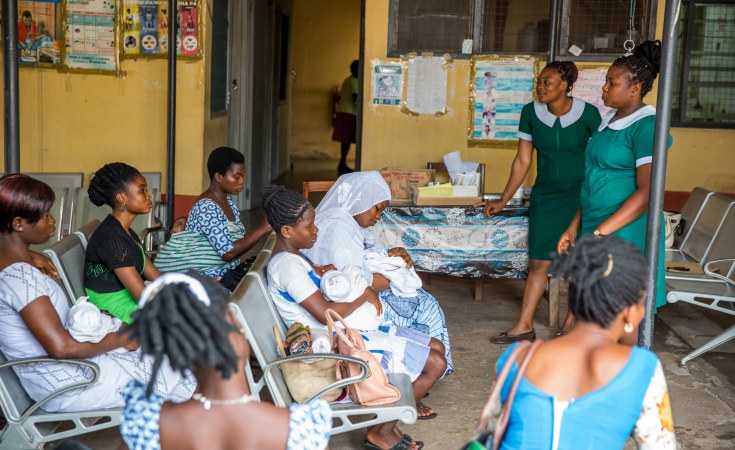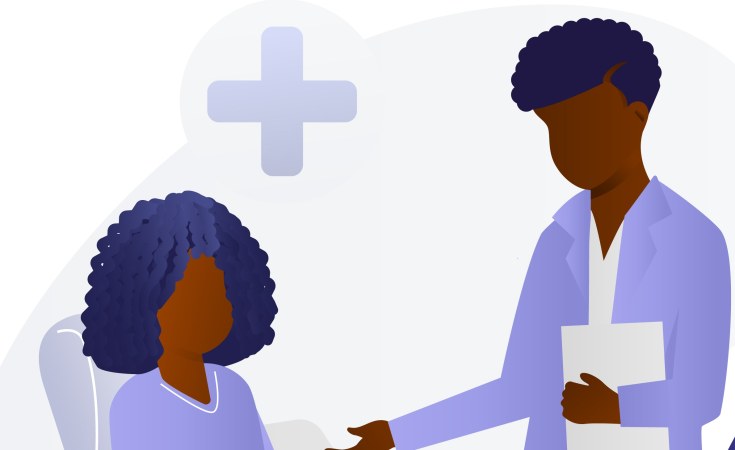The outbreak of COVID-19 threatens to exact a high toll in sub-Saharan Africa, both because of its devastating effects on its victims and because of its potential to interrupt routine health services. Apart from those who might die of COVID-19, many more could die as a result of weak or strained primary health care (PHC) systems.
We must therefore focus not only on preventing the spread of the coronavirus and treating those who have been infected—we must also maintain PHC throughout this pandemic if we are to save lives both in the short and the long term.
The 2014-16 Ebola epidemic in West Africa claimed more than 11,000 lives. Several studies indicate that at least as many people died from causes other than Ebola because of weak PHC systems and interruption of routine health services. Chief among these were testing and treatment for malaria, HIV and tuberculosis, as well as childhood vaccinations and maternity care.
The use of routine health services fell by 23 percent in Sierra Leone and by 39 percent in Liberia in 2014, according to their respective governments. In Liberia, maternal mortality rose by 75 percent and untreated malaria cases by 140 percent. The need for PHC services persists in the face of this pandemic—in Nigeria alone, about 1 million people require consistent antiretroviral therapy for HIV, and another million require testing.

PHC is not only the cornerstone of health systems in non-crisis periods; a strong PHC system will bolster countries' response to COVID-19, especially as they confront subsequent waves. Like the West African Ebola epidemic, the current pandemic is exposing weaknesses in responding to, managing and mitigating COVID-19.
Strengthening PHC systems and ensuring access to quality essential health services is more relevant than ever in the face of COVID-19. The vast majority of people infected with COVID-19 do not require facility-based care. PHC providers, including community health workers, communicate essential public health messages to people, support symptom management, and make referrals when greater levels of care are required. Health workers also engage communities to identify, refer and trace COVID-19 patients to mitigate and eventually stop community spread.
It is critical that the response to this pandemic doesn't erode advances we have made in improving PHC throughout sub-Saharan Africa. For example, the government of Kenya recently diverted U.S. $9.4 million designated for strengthening PHC to fight the spread of COVID-19. Although governments in many African countries already devote much of their health budgets to PHC, the need exceeds the funding. Across low-income countries, the average health spending was only $41 per person in 2017, compared with $2,937 in high-income countries, according to the World Health Organization .
Scaling up PHC interventions across low- and middle-income countries would save at least 60 million lives and increase average life expectancy by 3.7 years by 2030, according to The Lancet . In the 2001 Abuja Declaration, African Union countries pledged to devote 15 percent of their national budgets to health, but few countries have reached that goal because of competing priorities, a large debt burden, shrinking foreign assistance and otherwise inadequate resources.
Governments in African countries must engage in a dual track: addressing the COVID-19 pandemic while continuing to provide essential health services. Every day we delay, the burden of care grows exponentially and health outcomes worsen. Africans are expert at being resourceful—we must persevere and continue to improve PHC in our countries. It is the only way to keep our people healthy and strong from day to day and for when we face the next crisis.
Vicky Okine is executive director and Nii Sarpei is director of programs for the Alliance for Reproductive Health Rights, which brings together civil society organizations and government stakeholders to build stronger PHC systems, drawing on the strengths of local health systems, community engagement and structures, and rights and empowerment to achieve responsive and equitable health.



